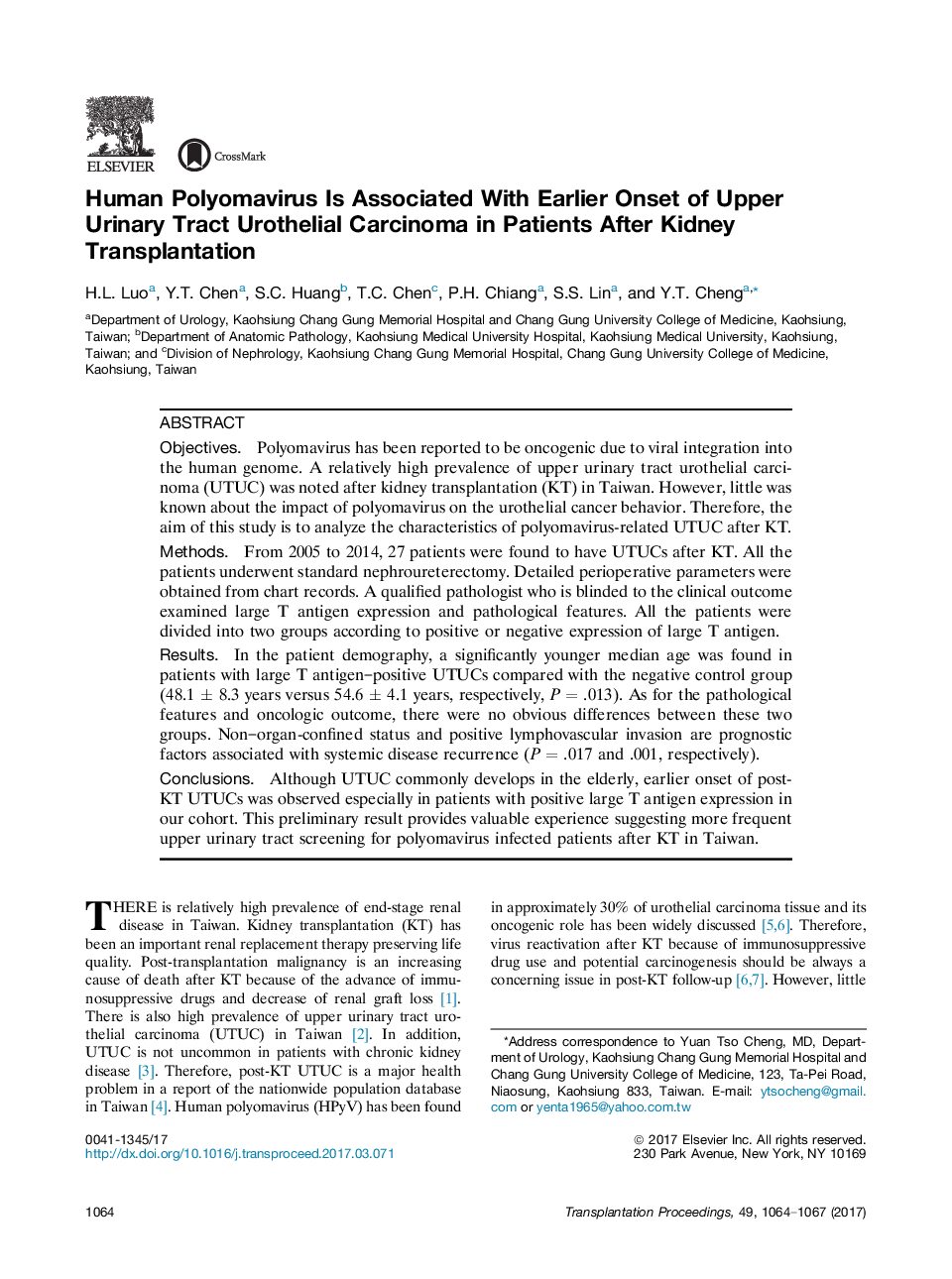| Article ID | Journal | Published Year | Pages | File Type |
|---|---|---|---|---|
| 5728800 | Transplantation Proceedings | 2017 | 4 Pages |
ObjectivesPolyomavirus has been reported to be oncogenic due to viral integration into the human genome. A relatively high prevalence of upper urinary tract urothelial carcinoma (UTUC) was noted after kidney transplantation (KT) in Taiwan. However, little was known about the impact of polyomavirus on the urothelial cancer behavior. Therefore, the aim of this study is to analyze the characteristics of polyomavirus-related UTUC after KT.MethodsFrom 2005 to 2014, 27 patients were found to have UTUCs after KT. All the patients underwent standard nephroureterectomy. Detailed perioperative parameters were obtained from chart records. A qualified pathologist who is blinded to the clinical outcome examined large T antigen expression and pathological features. All the patients were divided into two groups according to positive or negative expression of large T antigen.ResultsIn the patient demography, a significantly younger median age was found in patients with large T antigen-positive UTUCs compared with the negative control group (48.1 ± 8.3 years versus 54.6 ± 4.1 years, respectively, P = .013). As for the pathological features and oncologic outcome, there were no obvious differences between these two groups. Non-organ-confined status and positive lymphovascular invasion are prognostic factors associated with systemic disease recurrence (P = .017 and .001, respectively).ConclusionsAlthough UTUC commonly develops in the elderly, earlier onset of post-KT UTUCs was observed especially in patients with positive large T antigen expression in our cohort. This preliminary result provides valuable experience suggesting more frequent upper urinary tract screening for polyomavirus infected patients after KT in Taiwan.
